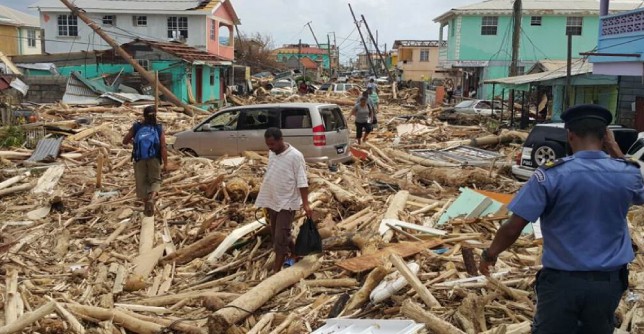Logisticians can’t help with recovery operations if their businesses aren’t prepared, says Kathy Fulton, executive director of the American Logistics Aid Network.
Natural disasters disrupt the flow of supply chains, but businesses can make preparations that could reduce the impact and allow them to assist with recovery operations, said Kathy Fulton, executive director of the American Logistics Aid Network (ALAN).
She said ALAN, which was formed after seeing breakdowns in the supply chain in the aftermath of Hurricane Katrina in 2005, educates the nonprofit community about logistics activities and connects them to businesses that conduct logistics services.
“We also work with the business community to make you more prepared,” she said Wednesday during a Council of Supply Chain Management Professionals roundtable event in Jacksonville, Fla. “That’s because if your business does not survive a disaster, there is no way you can assist on a project when the time is necessary.”
Fulton said about 60% to 80% of humanitarian response following a disaster goes toward logistics services, but as much of 40% of that is waste, which could be caused by inefficient shipping due to time constraints. Both demand for goods and the supply increase in the wake of a disaster, and logisticians have to be prepared to move the items, she said.
“People want to help. Disasters are sexy, y’all,” she said. “People want to help, but that means you have to handle those things.”
The Supply Chain Check-Up, a seven-step questionnaire ALAN created in partnership with the MIT Humanitarian Supply Chain Lab and LIFT Nonprofit Logistics, is designed to help a company assess its ability to move goods and personnel into, out of, within or through affected areas.
Fulton said businesses need to identify what they need to protect and areas in which they are vulnerable. With the Atlantic Hurricane season beginning Saturday — and predicted by the National Oceanic and Atmospheric Administration to be a “near-normal” season with a likely range of nine to 15 named storms — there are steps businesses can take in the coming weeks to be prepared.
Companies should have an updated list of contacts that is available offline, updated contingency plans and an office generator. Businesses also can help employees build a preparedness kit and have supplies available for employees who stay at the facility during the disaster, Fulton said, and have plans for employees who are displaced from their homes after the disaster.
She said the county emergency manager also should visit a facility or warehouse because the items in those buildings could help restock store shelves to aid recovery efforts.
“The more we can do from a commercial perspective, the more that people can go and buy things, the less burden that is on the government so your taxes go further,” Fulton said. “They can help really those who are most at risk.”
The needs of a community change over time following a disaster “from needing food and water and medicine to needing Sheetrock and replacement tarps,” Fulton said. She said oil and filters for generators in Puerto Rico after Hurricane Maria in 2017 were held up at port because “the folks who were moving supplies down to Puerto Rico — whether they were government or businesses — thought that food and hydration and other things took higher priority.
“But really had they just allowed some of those other natural commercial activities to flow, the stores would have been able to open sooner and the reliance on the secondary replacement supply chain would have been much less,” she said.
Although moving packages to disaster areas may seem like normal business practices to logisticians, the impact on the struck community is much greater than that, Fulton said.
“You’re delivering hope for a promise of a better future. You’re delivering dignity,” she said. “I can’t think of the number of hygiene kits that we’ve moved so people can now brush their teeth or comb their hair. It’s much greater than just using your skills and expertise. It’s really making a huge difference.”










